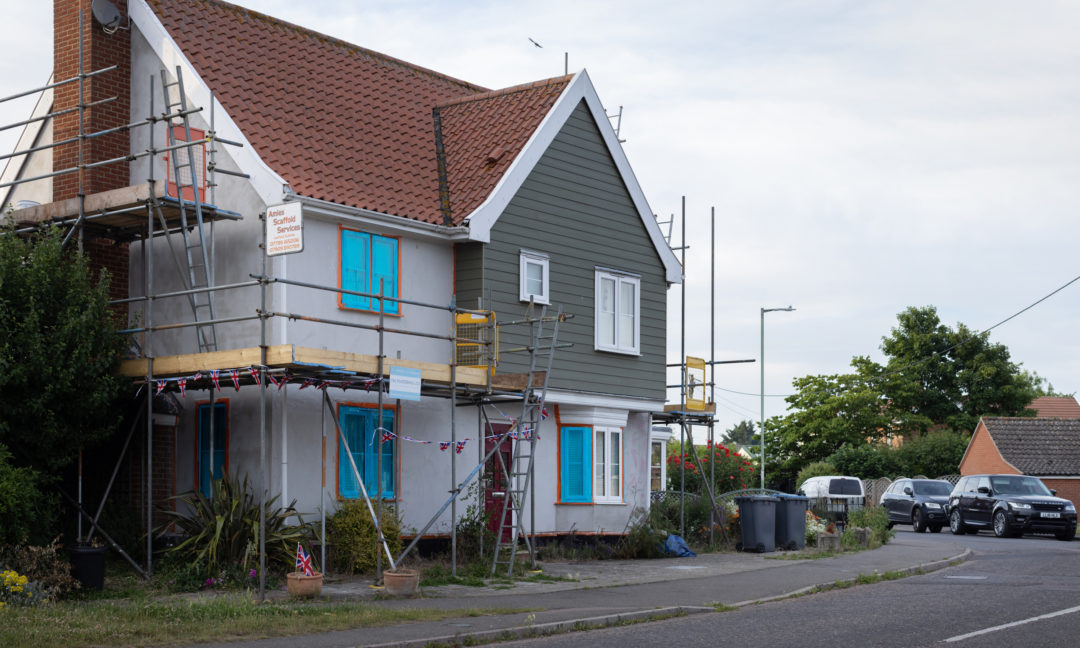The mortgage brokers below have quite literally been there and bought the t-shirt when it comes to applying for self build mortgages for their clients.
Not only are they experts in understanding how to fund a self build project but importantly they are also pretty adept at getting their heads around architects’ plans and project management timelines. By understanding every aspect of the project, these brokers can then determine which mortgage provider is most likely to accept their client’s application.
Here, these experts share some of their knowledge and insights to help others who are also considering this self build route:
Andrew Lawrence, SPF’s Associate Director, and self- build expert, began with some preliminary guidance for anybody thinking of applying for a self -build mortgage:
“Before you engage [in a self-build project], you need to know if it is achievable and for this, you may need self-build finance. A good broker who understands this funding can be an invaluable addition to your team… Structure is key to the right self -build mortgage, rather than rate.”
Andrew added:
“Make sure to get your finances arranged as early as possible because good builders are in short supply. Equally, don’t be pressured into signing anything until you have a mortgage offer in hand because you’ll be legally committing to pay a builder money you don’t have.”
Rachel Woodward, Mortgage Advisor, Needham Mortgage Centre, agreed that engaging with the mortgage process as early as possible is vital:
“The earlier you look for advice, the more likely it will be that you will find the self build process a smooth one as all aspects of your income and project can be checked before you start an application, avoiding costly fees for a project that can’t get off the ground.”
Sophie Waugh, Mortgage Technical Manager, John Charcol, shared some insight on affordability.
“Make sure you think about your plans and costs for the period you will be completing the build work. The lender is generally going to need to take into consideration any rent and outgoings you will be liable for during this period when assessing your affordability.
“Know the value of the land, the total build cost, and the estimated final value as this is also information the lender is going to look for upfront.”
Mike Pawley, Director, Mayflower Mortgage and Finance, continued on this theme:
“In the last 12-15 months [having your build professionally estimated] couldn’t be more important given the increase in material prices. Lots of our clients still think they can build for £1,000 per square metre and get underway with this in mind. In reality, the average self-build in the last 12 months is costing £1,784 per metre.”
He said: “Understanding the pros and cons of different [building] methods will help clients get a grasp of the cash flow requirements… More modern methods of constructions tend to be heavy upfront on cash flow, while traditional builds tend to be more steady on the cash flow.”
Mike also commented on the importance of getting your application in as early as possible:
“We see lots of clients who can start projects with their own funds and speak to us post build commencement once these funds are running out. The problem we see with this approach is that it can delay the build waiting for lender approval.”
“You can get your self build mortgage offer approved before you start building, giving complete peace of mind, drawing funds only when needed.”
Returning to Andrew’s point about product structure, Sophie added this valuable guidance:
“Use a lender that offers the funds to be released how you require them. For example, if you need the funds to be released in arrears, choose a lender and option to accommodate this, alternatively, if you are going to need the funds to be released in advance to build, you will need a lender offering this option.”
Rachel also commented on the saleability of a self build home and the importance of checking that it will meet mortgage lenders’ criteria in the future:
“Lenders could have an issue with where the property is, what it is made of, or what warranty you have put in place for the property. This could leave you either paying a significantly higher interest rate to remortgage or being unable to mortgage or sell the property as lenders are not comfortable with the construction method.”
Finally, Andrew concluded:
“You need the right motivation to undertake a self-build project. It can take time, effort, and additional stress that you wouldn’t have if you bought something pre-built. But the rewards can be huge. There is the emotional benefit of building a house to your dream specifications and usually, a financial benefit as the cost of building a house tends to be far lower than its eventual market value.”
Many thanks to the mortgage intermediaries who contributed to this blog post.
Please be aware that this information does not constitute a recommendation nor an endorsement by Suffolk Building Society. When considering using an independent mortgage advisor, it can be beneficial to conduct your own research to find the best or most suitable provider according to your individual needs and circumstances.


















